You may need to install firmware for your Samsung Galaxy devices for a variety of reasons. It could be as simple as you trying to update your device to a newer build or Android version, or it could be that you are looking to fix a soft-bricked device manually as firmware helps a lot when looking for a way to unbrick a device.
Please read in more details below as to how a firmware helps you solve different types of issues. And that includes downgrade too, as also going back to stock.

Samsung Galaxy Firmware Installation Guide
Note: The guide for installing a firmware remains the same for all Samsung devices. Yes, ALL Samsung devices. So, whether you own a new or old Galaxy phone or tablet, feel free to use the guide below.
Disclaimer
Installing an official firmware through Odin doesn’t void your device’s warranty, but it remains an unofficial process and thus you need to be cautious of it. In any case, you only are responsible for your device. We won’t be liable if any damage occurs to your device and/or its components.
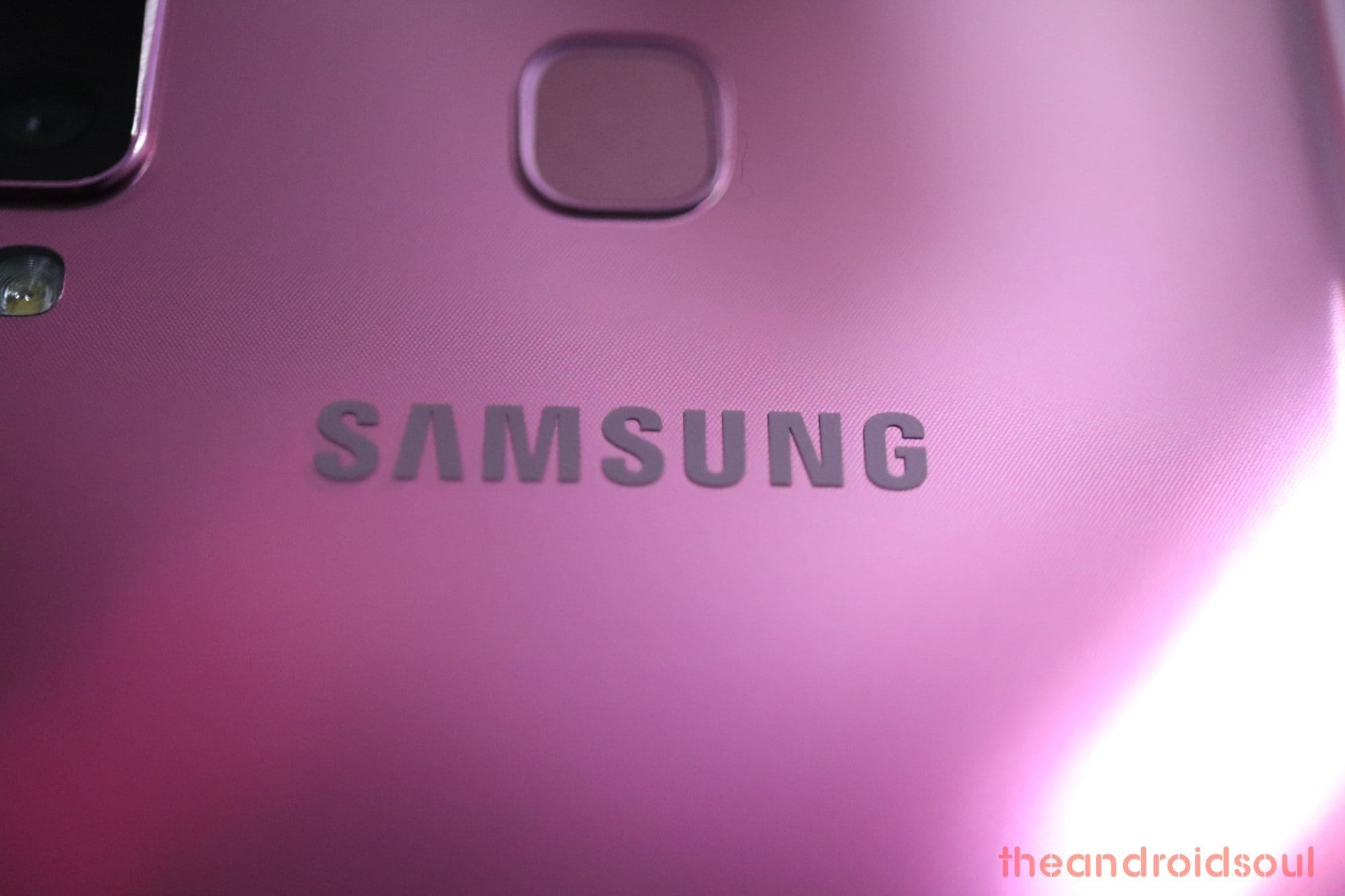
Backup!
Ensure that you back up all the important data (including photos and videos, contacts, music, videos, files, etc.) on your Galaxy S9.
- How to take a full backup on Android
- How to sync device folder online
- Force backup Android data to Google Drive
Step-by-step Guide
Step 1. Make sure you have downloaded the firmware on your PC. Search our site for it if you don’t have it already.
Step 2. Install Samsung USB driver (method 1 on the linked page) first of all. Double-click the .exe file of drivers to begin the installation. (Not required if you have already done this.)
Step 3. Also, download Odin PC software (latest version, 3.13.3).
Step 4. Extract the firmware file now. You can use free software like 7-zip for this. Install 7-zip, then right-click on firmware file and under 7-zip, select ‘Extract here’. You should get files in .tar.md5 format now. (You may a bunch of files, and you will find text like AP, BL, CP or CSC, etc. written at the beginning of those files.) We will be loading this file into Odin, to be installed on the device.
Step 5. Extract the Odin file. You should get the Odin exe file (other files could be hidden, hence not visible).
Step 6. Disconnect your Galaxy device from PC if it is connected.
Step 7. Boot your device into download mode:
- Power off your device. Wait for 6-7 seconds after the screen goes off.
- Press and hold the following combination of buttons until you see the Warning screen.
- For Note 9, Note 10 and S10, connect the device to PC using the USB cable while pressing and holding Volume down + Bixby buttons together until you see the Warning screen (image).
- If your device has a Bixby button, then use Volume down + Bixby + Power buttons together
- If your device doesn’t have a home or Bixby button, then use Volume down + Volume up + Power buttons combo.
- If your device has a home button, use Volume down + Home + Power buttons combo.
- Alternate combo: Power + Volume up + Volume down
- Another alternate combo: Press and hold Volume up + Volume down and then insert the USB cable
- Press Volume Up to continue to download mode.
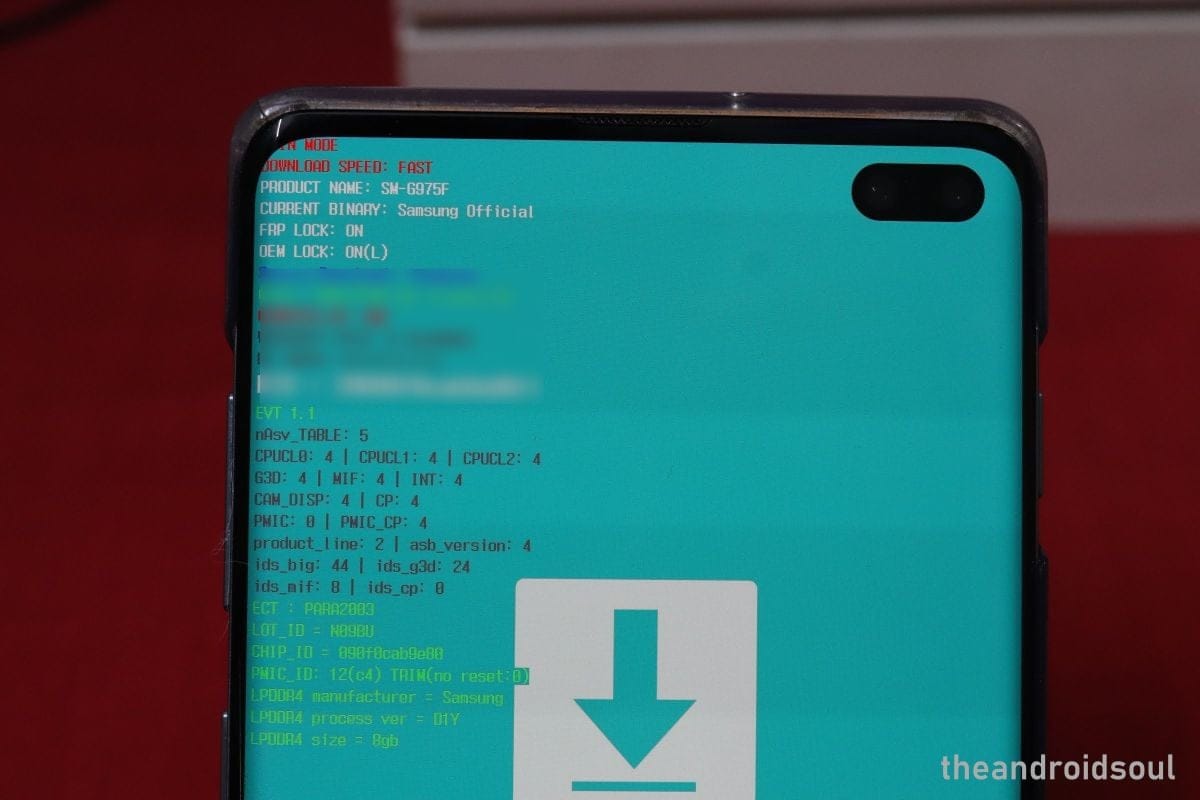
Step 8. Double click on Odin .exe file (from step 5) to open the Odin window as shown below. Be careful with Odin, and do just as said to prevent problems.

Step 9. Connect your device now using the USB cable. Odin should recognize your device. It’s a must. When it recognizes, you will see Added!! message appearing in the Log box in the bottom left, and the first box under ID:COM will also show a no. and turn its background blue. Look at the pic below.

- You cannot proceed until you get the Added!! message, which confirms that Odin has recognized your device.
- If you don’t get Added!! message, you need to install/re-install drivers again and use the original cable that came with the device. Mostly, drivers are the problem (look at step 2 above).
- You can try different USB ports on your PC too.
Step 10. Load the firmware files into Odin. Click the AP button on Odin and then select the .tar.md5 file from above. See the screenshot below to find how the Odin window will look like after you have loaded the files.
- Click on the BL tab, and select the file beginning with BL text.
- Click on the AP tab, and select the file beginning with AP text.
- Click on the CP tab, and select the file beginning with CP text.
- [Different!] Click on the CSC tab, and select the file beginning with HOME_CSC text. If the HOME_CSC file isn’t available, then select the file beginning with CSC text.
About CSC file: Using the HOME_CSC file won’t reset your device, and data on the phone shouldn’t be deleted. However, when we select a regular CSC file, and it results in CSC on the device being different than that in the CSC file, your phone will be formatted automatically. You can even choose to ignore loading the CSC file, that may do alright too. But if it doesn’t work out, repeat the whole process and select CSC file this time around.
- Info: When you load files, Odin checks the md5 sum of the firmware file, which takes time. So, simply wait until that’s done and the firmware file is loaded. Don’t worry if Odin gets unresponsive for a while, it’s normal. Binary size will also show up in Odin.
One firmware file? If you got only one firmware file after extracting the zip, it’s okay too. It would begin with AP and has to be loaded to the AP tab in Odin. Ignore other tabs in Odin. That’s it.
Step 11. Click on the Options tab, and make sure the Re-partition checkbox is NOT selected. Don’t use the PIT tab, ever.
Go back to the Log tab now, as it will show the progress of the firmware installation when you hit the start button in the next step.
Step 12. Verify that everything is okay as mentioned above. When satisfied, click the Start button on Odin now to start flashing the firmware on your device.
Wait till the installation is finished, after which your device will reboot automatically. You’ll get the PASS message as shown below upon successful installation from Odin.

Some errors you may run into, and with the respective solution.
- If Odin gets stuck at setup connection, then you need to do this all again. Disconnect your device, close Odin, boot device into download mode again, open Odin, and then select the file and flash it again as said above.
- If you get FAIL in the top left box, then also you need to flash the file again as stated just above.
Done!
Need help? Sure, let us know in the comments section below.
Benefits of stock firmware
Back To Stock: If you wish to go back to stock on your Samsung device, simply installing a firmware using Odin will do it. Whatever customization you had done will be gone, like custom recovery, custom kernel, root access, etc. The device becomes as good as new software-wise.
Update: Installing firmware with a newer Android version or build no. is the easiest way to update your Samsung Galaxy device manually, without waiting for the OTA update, or when OTA fails you.
Unbrick: If your Galaxy device is not starting properly and is stuck in the boot loop situation and thus rebooting after should the logo, then installing a firmware will fix that too. It serves as a good fix for soft-bricked devices.
Unroot, etc.: Well, you can easily unroot your device by installing the stock firmware. This will also remove custom recovery (like TWRP, CWM, Cyanogen, PhilZ, etc.), custom kernel, etc. stuff, as all partitions are installed with Samsung’s default respective images.

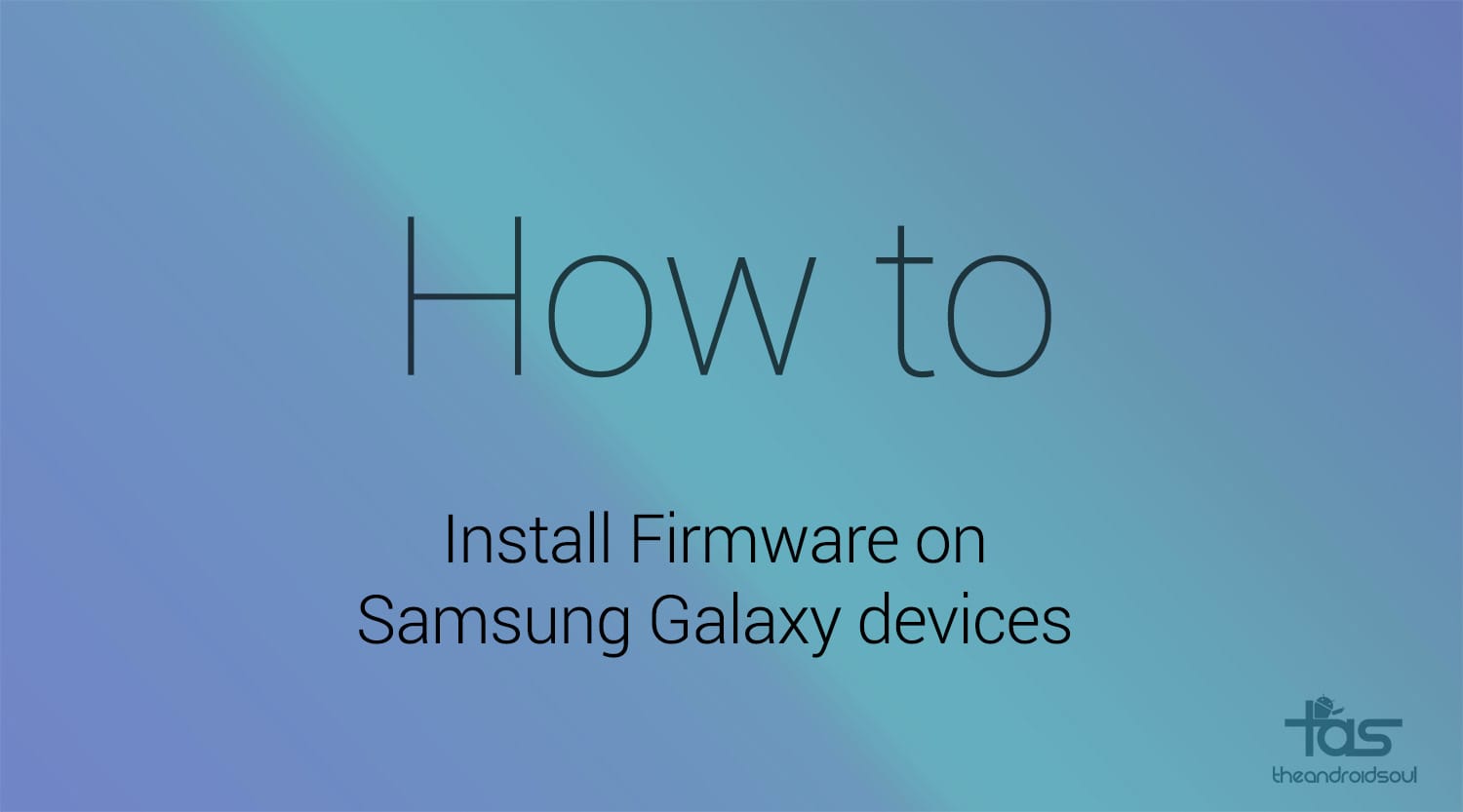
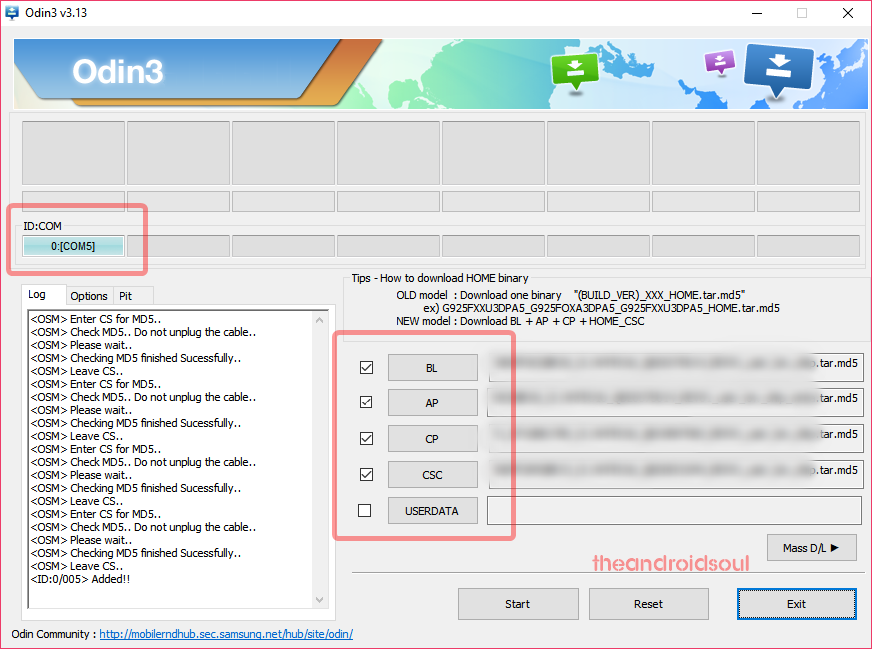
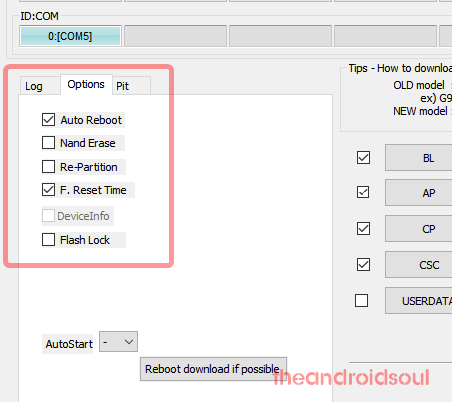



![Solution For Quiz - Where Did the Dragon Hall Deal a Major Blow to the Khitan Navy [Where Winds Meet]](/content/images/2026/01/1-15.png)







Discussion